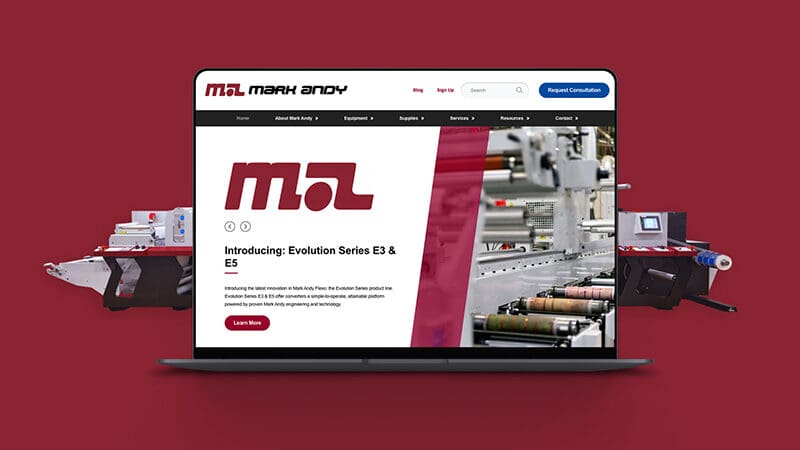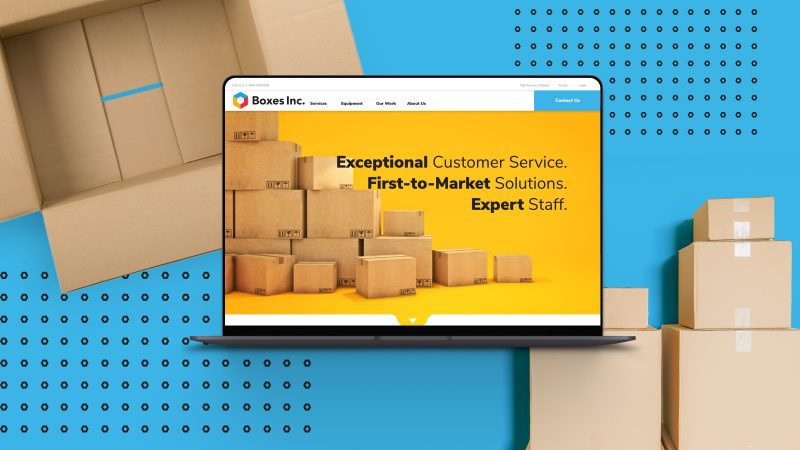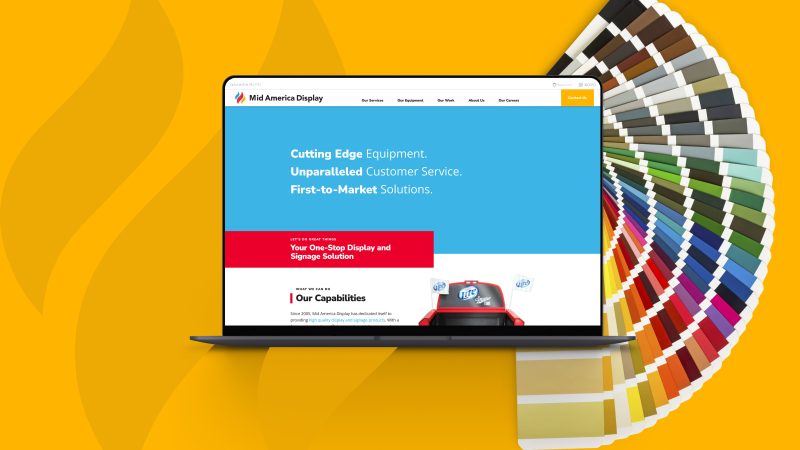Our Manufacturing Marketing Expertise
At Timmermann Group, our expertise as a manufacturing marketing agency goes beyond surface-level solutions. Our team focuses on decoding the complex pathways your potential customers take when seeking industrial and manufacturing companies. Recognizing the distinct value of each client, we shun the one-size-fits-all approach and instead embrace a custom-crafted strategy that addresses your unique needs within the industrial and manufacturing sector.
Our proven track record with some of the largest manufacturing companies attests to our ability to translate your specific value into a compelling marketing strategy. Our commitment to continually evolving our marketing strategies in alignment with the ever-changing digital landscape ensures that your manufacturing company stays top-of-mind with your customers. Trust us to be your dedicated partner in growth and success, persistently pursuing the next opportunity for your industrial or manufacturing company.
We have partnered with Timmermann for three years and we are so impressed with the improvement we’ve seen through SEO efforts across our brands. The team is always supportive and very patient. Julie is an incredible Director of Accounts. She is second to none. She will always brighten your day!
-Tracey Wiltshire, Tacony CorporationWe began working with Timmermann Group when our company merged with another who had been using them for years. I was immediately impressed with Rob and his team of experts. They fully understood our complex industry, and were quickly able to develop robust tools for our SEO, social media, website creation, creative strategy and execution. We tasked them with developing a large global website, in multiple languages, in half the time it usually takes to develop such a large-scale website. The team delivered in spades. Our new global website is seeing dramatically increased traffic numbers, up to 3X more than before we utilized their services. In addition, our social media presence has seen a tremendous boost, regularly seeing 3-5X the number of followers as before. We are realizing actual revenue increases due to their mastery of social media and SEO strategy. I could not be more impressed, and would whole-heartedly recommend them to anyone, in any industry, seeking to grow their revenue through digital avenues.
-Benjamin Bowlware , MaxcessThe project has been a labor of love for marketing, product subject matter experts, and our web development agency partner, Timmermann Group. The end result is a digital platform that is engaging, full of value-add content, and reflective of who Mark Andy is today--an innovative leader of the printing industry.
-Chandler Davis, Mark AndyTimmermann Group has been our social and web development partner for nearly three years. They helped us redesign our website, optimize performance, integrate social and create a dynamic online experience that is second to none in the industry. The team has been excellent to work with, responsive to requests, creative in approach and excellent in execution. The numbers don't lie! Highly recommend.
-Keith Laakko, RotoMetricsOur Most Popular Manufacturing Marketing Agency Services
Discover our most popular services, making us a sought-after manufacturing marketing agency for industrial and manufacturing companies. Our suite of services is strategically designed to address the multifaceted needs of your business in the manufacturing industry and manufacturing subindustries, such as the packaging industry. From bolstering your online presence with Search Engine Optimization (SEO) and Social Media Marketing to designing a responsive website that effectively showcases your offerings to crafting a powerful and consistent brand image, we at Timmermann Group provide a comprehensive approach that encapsulates the unique marketing strategy your industrial or manufacturing company needs to succeed.
Our Manufacturing Marketing Success Stories
Give your manufacturing company the marketing agency it deserves. Schedule a collaborative conversation with us today.
Learn More About Manufacturing Marketing
A few key aspects make manufacturing marketing unique from other industries and marketing segments. In our 20+ years of working with manufacturing companies to grow their businesses, generate leads, and achieve their goals, we’ve learned to recognize the facets of marketing strategy that haven’t changed in decades and the aspects that vary by the day. Figuring out what to keep from the old and how to apply it to the new involves a deep understanding of marketing in the manufacturing industry.
Manufacturing marketing is a specialized branch of marketing that focuses on promoting a company’s manufacturing products and services to its target audience. This involves creating and implementing marketing strategies designed specifically for the manufacturing sector, considering the industry’s unique challenges, opportunities, and customer needs. Manufacturing marketing encompasses various tactics and channels to effectively communicate with potential customers, showcase the company’s expertise, and build brand awareness, ultimately leading to increased sales and business growth.
Key components of manufacturing marketing include:
- Brand Development: Establishing a solid brand identity that reflects the company’s values, mission, and unique selling points. This helps to create a consistent and recognizable image for the manufacturing company, differentiating it from competitors.
- Digital Marketing: Utilizing digital channels such as search engine optimization (SEO), pay-per-click (PPC) advertising, social media marketing, email marketing, and content marketing to reach and engage with the target audience, generate leads, and drive conversions.
- Content Creation: Develop informative and engaging content, such as blog posts, whitepapers, case studies, videos, and infographics, to showcase the company’s expertise, address customer pain points, and solve industry-specific challenges.
- Trade Shows and Events: Participating in industry trade shows and events to network with potential customers, showcase products, and build brand awareness within the manufacturing sector.
- Public Relations: Managing the company’s reputation and media presence, including press releases, media relations, and crisis communications, to ensure a positive public image.
- Sales Enablement: Providing the sales team with the necessary tools and resources, such as product datasheets, brochures, and presentations, to effectively sell the company’s manufacturing products and services.
- Customer Relationship Management (CRM): Implementing CRM systems and strategies to manage customer interactions, track leads, and nurture relationships, resulting in higher customer retention and loyalty.
In summary, manufacturing marketing is the process of promoting a manufacturing company’s products and services through tailored strategies and tactics that address the unique needs and challenges of the industry. By leveraging a comprehensive marketing approach, manufacturing companies can increase brand visibility, attract potential customers, and drive business growth in a competitive marketplace.
.
Manufacturing companies should invest in digital marketing services for several reasons. In today’s increasingly digital world, having a strong online presence is crucial for business growth, visibility, and competitiveness. Here are some key reasons why manufacturing companies should invest in digital marketing services:
- Reach a Wider Audience: Digital marketing services enable manufacturing companies to reach a broader domestic and international audience. Businesses can connect with potential customers and partners beyond their immediate geographic region by leveraging various online channels.
- Targeted Marketing: Digital marketing allows for precisely targeting specific customer segments based on demographics, interests, and behaviors. This ensures your marketing efforts reach the right audience, resulting in higher engagement and conversion rates.
- Cost-Effectiveness: Digital marketing services often provide a more cost-effective solution than traditional marketing methods. By focusing on targeted campaigns and optimizing marketing spend, manufacturing companies can achieve better results with a lower investment.
- Measurable Results: Digital marketing services offer the ability to track and analyze the performance of campaigns in real time. This provides valuable insights into the most effective marketing strategies, allowing businesses to make data-driven decisions and maximize their return on investment (ROI).
- Adaptability: Digital marketing strategies can be easily adapted and adjusted based on market trends, customer feedback, and business goals. This enables manufacturing companies to remain agile and responsive to changing market conditions and customer needs.
- Strengthen Brand Image: By investing in digital marketing services, manufacturing companies can enhance their brand image and credibility online. A strong digital presence helps build trust and confidence among customers and prospects, which is essential for long-term success.
- Improve Customer Experience: Digital marketing allows manufacturing companies to provide a seamless and personalized customer experience, from initial research to post-purchase support. Businesses can build stronger relationships and foster customer loyalty by engaging with customers through multiple touchpoints.
- Enhance Competitiveness: As more and more manufacturing companies recognize the importance of digital marketing, those investing in these services will gain a competitive edge over those not. Staying ahead of the curve ensures that your business remains visible and relevant in an increasingly crowded marketplace.
In conclusion, investing in digital marketing services is essential for manufacturing companies looking to expand their reach, target the right audience, optimize marketing spending, measure results, adapt to market changes, strengthen their brand, improve customer experience, and enhance competitiveness. By leveraging the power of digital marketing, manufacturing companies can drive growth and success in today’s rapidly evolving business landscape.
Marketing can become an extension of your manufacturing company’s sales team by working hand-in-hand with them to generate leads, nurture prospects, and ultimately close deals. By aligning marketing and sales efforts, your company can create a seamless and efficient process that drives business growth. Here are some ways marketing can support and complement your sales team:
- Lead Generation: Marketing efforts such as content marketing, search engine optimization (SEO), email marketing, and social media advertising can help attract potential customers to your manufacturing company, generating a consistent flow of leads for your sales team to pursue.
- Lead Nurturing: Marketing teams can create targeted campaigns and content that engage and educate prospects throughout the buyer’s journey. By providing valuable and relevant information, marketing can help move leads through the sales funnel, making it easier for the sales team to close deals.
- Sales Enablement: Marketing can equip your sales team with the tools and resources they need to be more effective in their role. This includes creating sales collateral like brochures, product datasheets, and case studies and offering sales training on new products, industry trends, and buyer personas.
- Collaboration on Target Accounts: Marketing and sales can collaborate to identify high-potential target accounts and develop customized account-based marketing strategies to engage and convert these prospects.
- Customer Insights: Marketing can provide valuable insights into customer behavior, preferences, and pain points, enabling the sales team to tailor their approach and messaging to address the unique needs of each prospect.
- Brand Consistency: By ensuring that your sales team’s messaging aligns with your overall brand identity and marketing initiatives, you can create a cohesive and consistent experience for your customers, helping to build trust and credibility.
- Feedback Loop: A strong partnership between marketing and sales allows for ongoing communication and feedback, helping both teams to continuously refine their strategies and tactics for maximum impact.
- Analytics and Reporting: Marketing can provide data-driven insights into the performance of marketing campaigns and lead generation efforts, allowing the sales team to focus their resources on the most effective channels and strategies.
Integrating marketing with your manufacturing company’s sales team can create a powerful synergy that drives lead generation, accelerates the sales cycle, and enhances customer relationships. This collaborative approach ensures that your company maximizes its potential for growth and success in the competitive manufacturing landscape.
Marketing for a manufacturing company is important for several reasons; it helps generate brand awareness, drives sales, and provides a competitive edge in today’s rapidly evolving marketplace. Here are some key reasons why marketing is essential for a manufacturing company:
- Customer Acquisition: Effective marketing strategies help generate leads and attract potential customers, enabling manufacturing companies to expand their client base and increase revenue.
- Brand Awareness: Marketing helps build brand recognition and create a positive image for your manufacturing company, ensuring that your target audience knows your products and services.
- Differentiation: Marketing allows manufacturing companies to differentiate themselves from competitors by highlighting their unique selling points, such as product quality, innovation, or customer service.
- Customer Retention: Through targeted marketing campaigns, manufacturing companies can maintain relationships with existing customers, encouraging repeat business and fostering brand loyalty.
- Market Expansion: Marketing efforts can help manufacturing companies explore new domestic and international markets, allowing them to expand their reach and grow their business.
- Educating Customers: Marketing helps manufacturing companies educate their target audience about their products and services, demonstrating how they can address specific pain points and provide solutions to their customers’ needs.
- Keeping Up with Industry Trends: Effective marketing strategies help manufacturing companies stay informed about industry trends and adapt to changes in customer preferences and market conditions, ensuring long-term success.
- Enhancing Credibility: High-quality marketing materials, such as case studies, testimonials, and thought leadership content, can help establish your manufacturing company as an industry expert, instilling trust and credibility among customers and prospects.
- Measuring and Optimizing Performance: Marketing analytics and tracking tools enable manufacturing companies to measure the performance of their marketing efforts and optimize their strategies to maximize return on investment (ROI).
In summary, marketing is crucial for manufacturing companies as it helps them attract new customers, build brand awareness, differentiate from competitors, retain existing clients, expand into new markets, educate their audience, stay up-to-date with industry trends, enhance credibility, and measure and optimize performance. Investing in marketing is essential for manufacturing companies to remain competitive and achieve long-term success in today’s fast-paced business environment.
A marketing agency can help manufacturing companies advance by offering expertise, experience, and tailored strategies. Here are some key benefits of partnering with a marketing agency:
- Market Research: A marketing agency will conduct comprehensive market research to understand your industry, target audience, and competition. This knowledge will help them develop data-driven strategies to position your brand effectively in the market.
- Branding and Messaging: Marketing agencies can help refine your brand identity and messaging, ensuring that it resonates with your target audience and differentiates your company from the competition.
- Digital Presence: A marketing agency will optimize your online presence by creating a user-friendly website, managing your social media platforms, and implementing search engine optimization (SEO) techniques to increase your brand’s visibility and reach.
- Content Creation: Marketing agencies excel in creating high-quality, targeted content that educates and engages your audience. This may include blog posts, whitepapers, case studies, videos, and webinars that showcase your company’s expertise and solutions.
- Lead Generation: Marketing agencies will employ inbound marketing strategies, such as content marketing, email marketing, and social media advertising, to generate sales-qualified leads for your manufacturing business. They will also help nurture these leads through the sales funnel, increasing the chances of conversion.
- Analytics and Reporting: Marketing agencies provide detailed analytics and reporting on the performance of your marketing campaigns. This lets you make informed decisions and adjust your strategies, ensuring the best possible return on investment (ROI).
- Scalability and Flexibility: A marketing agency will offer scalable and flexible solutions that can grow and adapt to your business. This enables you to adjust your marketing efforts based on your company’s goals and market conditions as needed.
In summary, partnering with a marketing agency can help manufacturing companies gain a competitive edge by leveraging expert knowledge, strategic planning, and execution of data-driven marketing campaigns. This ultimately leads to increased brand awareness, lead generation, customer engagement, and revenue growth for your manufacturing business.
Analytics can be used to track your marketing ROI by measuring the performance of your marketing campaigns and providing insights into how effectively your marketing strategies are driving results. Here’s how analytics can help you monitor and optimize your marketing ROI:
- Establish Key Performance Indicators (KPIs): Start by identifying the KPIs that matter most to your business, such as website traffic, lead generation, conversion rates, customer acquisition costs, and customer lifetime value. These metrics will help you evaluate the success of your marketing efforts.
- Set Up Tracking Tools: Implement tracking tools, such as Google Analytics, to monitor your marketing campaigns across various channels like websites, social media, email marketing, and paid advertising. These tools will help you gather data on user behavior, campaign performance, and conversions.
- Analyze Data and Identify Trends: Examine the data collected from your tracking tools to identify patterns, trends, and correlations between your marketing efforts and desired outcomes. This analysis will help you understand which strategies are most effective in driving results and generating ROI.
- Optimize Campaigns: Use the insights gained from your analysis to make informed decisions about where to allocate resources and optimize your marketing campaigns. For instance, you can adjust your advertising budget, refine your targeting, or tweak your content strategy based on the performance data.
- A/B Testing: Perform A/B testing to compare different marketing tactics and determine which performs better in terms of engagement, conversions, and ROI. Continuously testing and iterating your strategies will help you maximize your marketing ROI.
- Measure ROI: To calculate your marketing ROI, compare the revenue generated by your marketing campaigns to the total marketing costs. This will give you a clear picture of how effectively your marketing investment drives results.
- Monitor and Adjust: Continuously monitor your marketing performance using analytics and adjust your strategies as needed. Regularly review your KPIs, marketing costs, and ROI to ensure you’re on track to meet your business goals.
In conclusion, analytics plays a crucial role in tracking your marketing ROI by providing valuable insights into the performance of your marketing efforts. By setting KPIs, implementing tracking tools, analyzing data, optimizing campaigns, and measuring ROI, you can make data-driven decisions that help maximize the return on your marketing investment.













